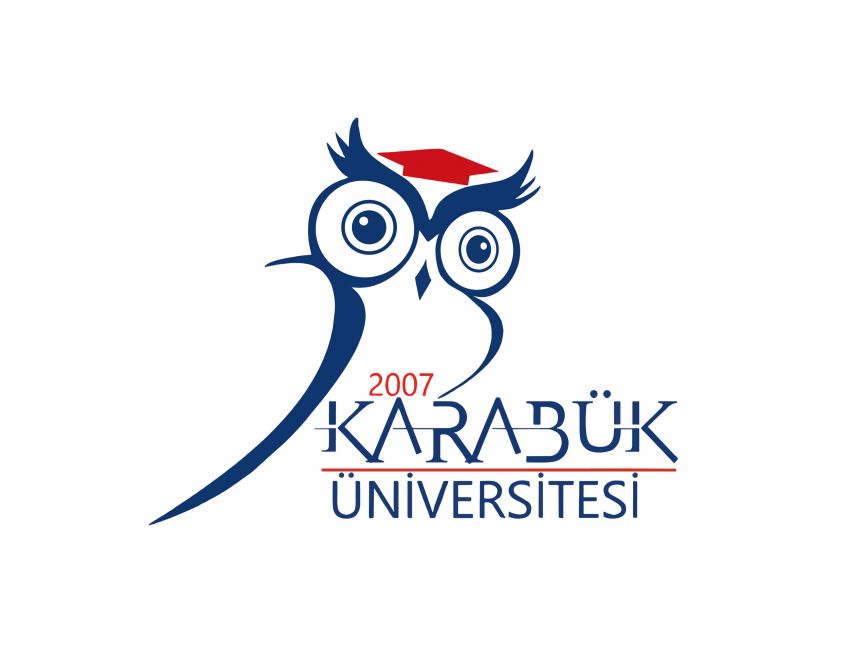Regional Studies (Interdisciplinary)
Overview
<!-- wp:paragraph --> <p><strong>Regional Studies (Interdisciplinary) at Karabük University: Understanding Global Diversity and Local Contexts</strong></p> <!-- /wp:paragraph --> <!-- wp:paragraph --> <p>The <strong>Regional Studies (Interdisciplinary)</strong> program at Karabük University offers a comprehensive, cross-disciplinary approach to studying the cultural, political, economic, and social aspects of specific geographic regions. This program equips students with the analytical tools and knowledge necessary to understand regional dynamics, fostering a global perspective while focusing on the distinctive characteristics of regions worldwide. Through a combination of theory, research, and practical application, students will be prepared to address complex regional issues and contribute meaningfully to policy development, international relations, and cultural preservation.</p> <!-- /wp:paragraph --> <!-- wp:heading {"level":3} --> <h3 class="wp-block-heading">Program Mission and Vision</h3> <!-- /wp:heading --> <!-- wp:paragraph --> <p>The mission of the <strong>Regional Studies (Interdisciplinary)</strong> program is to provide students with a broad and integrated understanding of the world's regions through the exploration of diverse historical, political, cultural, and socio-economic contexts. The program’s vision is to produce graduates who can bridge local and global issues, offering solutions that respect regional identities while contributing to the broader international community.</p> <!-- /wp:paragraph --> <!-- wp:heading {"level":3} --> <h3 class="wp-block-heading">Curriculum Overview</h3> <!-- /wp:heading --> <!-- wp:paragraph --> <p>The <strong>Regional Studies (Interdisciplinary)</strong> program blends coursework from political science, economics, sociology, history, geography, and cultural studies. The curriculum is designed to equip students with critical thinking skills and a deep understanding of global issues from regional perspectives. Students will explore both the global interconnectedness of regions and the unique local factors that shape them, gaining the ability to analyze regional challenges such as migration, economic development, conflict, and environmental sustainability.</p> <!-- /wp:paragraph --> <!-- wp:heading {"level":3} --> <h3 class="wp-block-heading">Core Foundations</h3> <!-- /wp:heading --> <!-- wp:paragraph --> <p><strong>Introduction to Regional Studies</strong>: Study the foundations of regional analysis, including key concepts, methodologies, and theoretical approaches to understanding regions in the global context.</p> <!-- /wp:paragraph --> <!-- wp:paragraph --> <p><strong>Globalization and Regionalization</strong>: Examine the processes of globalization and how regions respond to global forces. Understand the relationship between global trends and local/regional dynamics.</p> <!-- /wp:paragraph --> <!-- wp:paragraph --> <p><strong>Comparative Politics</strong>: Learn about different political systems, ideologies, and governance models in various regions, and how they impact social, economic, and political structures.</p> <!-- /wp:paragraph --> <!-- wp:paragraph --> <p><strong>Cultural Anthropology and Sociology</strong>: Study the cultural and social structures of different regions, focusing on issues such as identity, ethnicity, religion, language, and migration.</p> <!-- /wp:paragraph --> <!-- wp:paragraph --> <p><strong>Geography of Regions</strong>: Analyze the geographical features and spatial dynamics of regions, exploring how physical and human geography influence regional development, resources, and policy.</p> <!-- /wp:paragraph --> <!-- wp:paragraph --> <p><strong>Economic Development and Regional Disparities</strong>: Explore economic models and development theories, examining how different regions face unique economic challenges and opportunities.</p> <!-- /wp:paragraph --> <!-- wp:paragraph --> <p><strong>History and Regional Contexts</strong>: Gain insight into the historical events, movements, and forces that have shaped the development of regions, with a focus on their contemporary significance.</p> <!-- /wp:paragraph --> <!-- wp:paragraph --> <p><strong>International Relations and Diplomacy</strong>: Study regional power dynamics, international organizations, and diplomatic strategies that shape relations between countries and regions.</p> <!-- /wp:paragraph --> <!-- wp:paragraph --> <p><strong>Environmental Issues in Regional Contexts</strong>: Analyze regional environmental challenges such as climate change, resource management, and sustainable development from a local perspective.</p> <!-- /wp:paragraph --> <!-- wp:paragraph --> <p><strong>Research Methods in Regional Studies</strong>: Develop the skills to conduct interdisciplinary research in regional studies, using qualitative and quantitative methods to gather and analyze data.</p> <!-- /wp:paragraph --> <!-- wp:heading {"level":3} --> <h3 class="wp-block-heading">Specialized Topics in Regional Studies</h3> <!-- /wp:heading --> <!-- wp:paragraph --> <p><strong>Middle East Studies</strong>: Explore the history, culture, politics, and conflicts of the Middle East region, with an emphasis on contemporary issues such as oil, religious conflict, and geopolitics.</p> <!-- /wp:paragraph --> <!-- wp:paragraph --> <p><strong>Latin American Studies</strong>: Study the cultural, social, and political dynamics of Latin America, including the impact of colonization, development policies, and regional integration.</p> <!-- /wp:paragraph --> <!-- wp:paragraph --> <p><strong>Asian Studies</strong>: Focus on the diverse cultures, economies, and political systems of Asia, from South Asia to East Asia, analyzing regional powers, economic growth, and social changes.</p> <!-- /wp:paragraph --> <!-- wp:paragraph --> <p><strong>European Studies</strong>: Examine the political, economic, and social transformation of Europe, with a focus on the European Union, regional integration, and the impact of globalization on European countries.</p> <!-- /wp:paragraph --> <!-- wp:paragraph --> <p><strong>African Studies</strong>: Analyze the history, politics, and socio-economic issues facing African countries, exploring themes such as colonial legacies, development, and regional cooperation.</p> <!-- /wp:paragraph --> <!-- wp:paragraph --> <p><strong>Post-Soviet and Eastern European Studies</strong>: Study the legacy of the Soviet Union and the transformation of Eastern European countries, focusing on their political and economic transitions.</p> <!-- /wp:paragraph --> <!-- wp:paragraph --> <p><strong>Regional Security and Conflict Studies</strong>: Investigate the causes and consequences of regional conflicts, including the role of international interventions, security cooperation, and peace-building efforts.</p> <!-- /wp:paragraph --> <!-- wp:paragraph --> <p><strong>Indigenous Studies and Regional Identities</strong>: Examine the role of indigenous peoples and their cultures within regional contexts, including issues of rights, self-determination, and cultural preservation.</p> <!-- /wp:paragraph --> <!-- wp:paragraph --> <p><strong>Migration and Refugee Studies</strong>: Study the dynamics of migration and displacement within and between regions, focusing on the causes, consequences, and policy responses to refugee crises.</p> <!-- /wp:paragraph --> <!-- wp:heading {"level":3} --> <h3 class="wp-block-heading">Practical Applications</h3> <!-- /wp:heading --> <!-- wp:paragraph --> <p><strong>Field Research and Study Tours</strong>: Participate in field research and study tours, offering direct exposure to different regions, enabling students to observe and engage with local communities, cultures, and issues.</p> <!-- /wp:paragraph --> <!-- wp:paragraph --> <p><strong>Internships and Partnerships</strong>: Gain real-world experience through internships with governmental agencies, international organizations, think tanks, NGOs, and other regional research institutions.</p> <!-- /wp:paragraph --> <!-- wp:paragraph --> <p><strong>Capstone Project</strong>: Complete a final research project that integrates interdisciplinary methodologies, allowing students to explore a regional issue in-depth, demonstrating their ability to apply academic learning to real-world challenges.</p> <!-- /wp:paragraph --> <!-- wp:paragraph --> <p><strong>Community and Policy Engagement</strong>: Work with local communities or policymakers to explore regional challenges, conduct needs assessments, and propose solutions that contribute to regional development.</p> <!-- /wp:paragraph --> <!-- wp:heading {"level":3} --> <h3 class="wp-block-heading">Emerging Trends in Regional Studies</h3> <!-- /wp:heading --> <!-- wp:paragraph --> <p><strong>Digital Transformation and Regional Development</strong>: Study how digital technologies are reshaping regional economies, communication, and governance, and the implications for regional development.</p> <!-- /wp:paragraph --> <!-- wp:paragraph --> <p><strong>Sustainability and Regional Solutions</strong>: Explore how regions can address sustainability challenges, including energy use, environmental degradation, and socio-economic inequalities.</p> <!-- /wp:paragraph --> <!-- wp:paragraph --> <p><strong>Cultural Diplomacy and Soft Power</strong>: Learn about the role of cultural diplomacy in international relations, focusing on how regions use their cultural assets to enhance global influence.</p> <!-- /wp:paragraph --> <!-- wp:paragraph --> <p><strong>Urbanization and Regional Planning</strong>: Investigate the effects of rapid urbanization on regional development, including infrastructure, housing, and regional planning strategies.</p> <!-- /wp:paragraph --> <!-- wp:paragraph --> <p><strong>Climate Change and Regional Adaptation</strong>: Explore how regions around the world are responding to climate change, including policy frameworks, resilience building, and regional cooperation on environmental issues.</p> <!-- /wp:paragraph --> <!-- wp:heading {"level":3} --> <h3 class="wp-block-heading">Career Opportunities</h3> <!-- /wp:heading --> <!-- wp:paragraph --> <p>Graduates of the <strong>Regional Studies (Interdisciplinary)</strong> program are well-prepared to pursue careers in diverse fields such as:</p> <!-- /wp:paragraph --> <!-- wp:list --> <ul class="wp-block-list"><!-- wp:list-item --> <li><strong>International Relations Specialist</strong>: Work with governments, international organizations, or NGOs to address regional issues, negotiate international agreements, and facilitate cross-border collaboration.</li> <!-- /wp:list-item --> <!-- wp:list-item --> <li><strong>Policy Analyst</strong>: Analyze regional policies, economic conditions, and social structures to provide recommendations for governments, NGOs, or multinational companies.</li> <!-- /wp:list-item --> <!-- wp:list-item --> <li><strong>Diplomat or Foreign Service Officer</strong>: Represent your country’s interests abroad, managing relationships with foreign governments, participating in trade negotiations, and contributing to international peace efforts.</li> <!-- /wp:list-item --> <!-- wp:list-item --> <li><strong>Cultural Consultant</strong>: Provide expertise on cultural dynamics, traditions, and regional practices for businesses, governments, and organizations seeking to engage with specific regions.</li> <!-- /wp:list-item --> <!-- wp:list-item --> <li><strong>Regional Development Specialist</strong>: Work in governmental or international development agencies to implement projects aimed at promoting economic and social development in a specific region.</li> <!-- /wp:list-item --> <!-- wp:list-item --> <li><strong>Researcher or Academic</strong>: Conduct research on regional topics in universities, think tanks, or policy institutes, contributing to the academic study of global regions.</li> <!-- /wp:list-item --> <!-- wp:list-item --> <li><strong>Environmental or Humanitarian Expert</strong>: Work with organizations that focus on regional environmental challenges, disaster relief, and humanitarian issues, contributing to sustainable regional development.</li> <!-- /wp:list-item --></ul> <!-- /wp:list --> <!-- wp:heading {"level":3} --> <h3 class="wp-block-heading">Why Choose Karabük University?</h3> <!-- /wp:heading --> <!-- wp:list --> <ul class="wp-block-list"><!-- wp:list-item --> <li><strong>Interdisciplinary Approach</strong>: The <strong>Regional Studies</strong> program integrates multiple disciplines, providing a holistic understanding of global and regional issues.</li> <!-- /wp:list-item --> <!-- wp:list-item --> <li><strong>Affordable Education</strong>: Karabük University offers high-quality education at an affordable cost, providing excellent value for students pursuing a career in international affairs and regional analysis.</li> <!-- /wp:list-item --> <!-- wp:list-item --> <li><strong>Experienced Faculty</strong>: Learn from faculty members with expertise in regional studies, international relations, and cultural research, ensuring a rich, diverse learning experience.</li> <!-- /wp:list-item --> <!-- wp:list-item --> <li><strong>Hands-On Experience</strong>: The program offers fieldwork opportunities, internships, and study tours to give students practical experience and exposure to the regions they study.</li> <!-- /wp:list-item --> <!-- wp:list-item --> <li><strong>Global Perspective</strong>: The program fosters a global perspective, preparing graduates to engage with regional and international issues in meaningful ways.</li> <!-- /wp:list-item --></ul> <!-- /wp:list --> <!-- wp:heading {"level":3} --> <h3 class="wp-block-heading">Shaping the Future of Regional Understanding</h3> <!-- /wp:heading --> <!-- wp:paragraph --> <p>Karabük University’s <strong>Regional Studies (Interdisciplinary)</strong> program offers an exceptional foundation for students interested in exploring the complexities of different regions and contributing to global development. Through a combination of academic rigor, practical experience, and interdisciplinary research, the program ensures that graduates are equipped to meet the challenges of an increasingly interconnected world.</p> <!-- /wp:paragraph -->
Program Description
The Regional Studies (Interdisciplinary) program at Karabuk University offers a comprehensive curriculum designed to prepare students for successful careers in this dynamic field. The program combines theoretical knowledge with practical skills, ensuring graduates are ready for the challenges of the industry.
The program is taught by experienced faculty members who are leaders in their respective fields, providing students with insights into current industry practices and future trends.
Curriculum Highlights
- Advanced Research Methods: Learn cutting-edge research techniques and methodologies.
- Industry Analysis: Explore current industry trends and develop analytical skills.
- Leadership and Management: Develop essential leadership skills for managing teams and projects.
- Innovation and Entrepreneurship: Cultivate creative thinking and entrepreneurial mindset.
- Digital Transformation: Understand how technology is reshaping industries and businesses.
- Sustainable Development: Explore environmentally sustainable practices and their implementation.
- Global Markets: Study international market dynamics and global business operations.
- Technology Integration: Learn to leverage technology for improved business outcomes.
Requirements:
- Bachelor's degree (for Master's programs) or equivalent qualifications.
- Proven English language proficiency (IELTS 6.5+ or equivalent).
- Complete transcripts from previous education.
- A compelling letter of motivation explaining your interest in the program.
- Two letters of recommendation from academic or professional references.
- Valid passport with appropriate visa status or eligibility.
Benefits:
- World-class faculty with extensive industry experience.
- Modern campus facilities and cutting-edge learning environments.
- Strong industry partnerships providing networking opportunities.
- Internship opportunities with leading companies in the field.
- Comprehensive career services including job placement assistance.
- Access to a global alumni network for lifelong professional connections.
Begin your educational journey today.
Apply now and take the first step towards your future.





